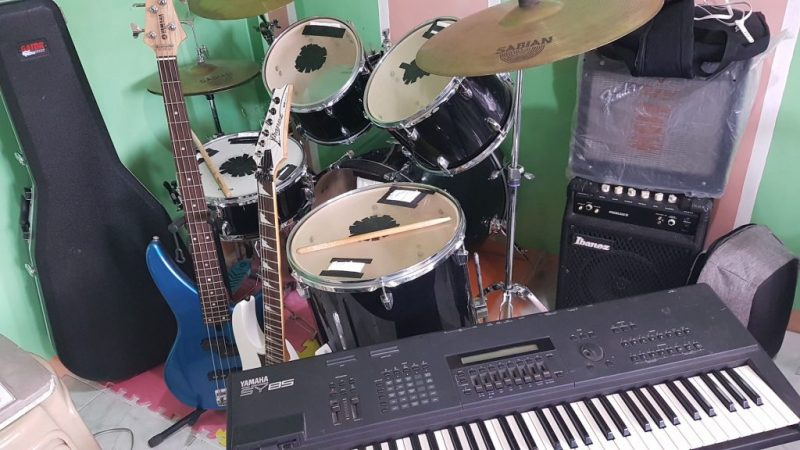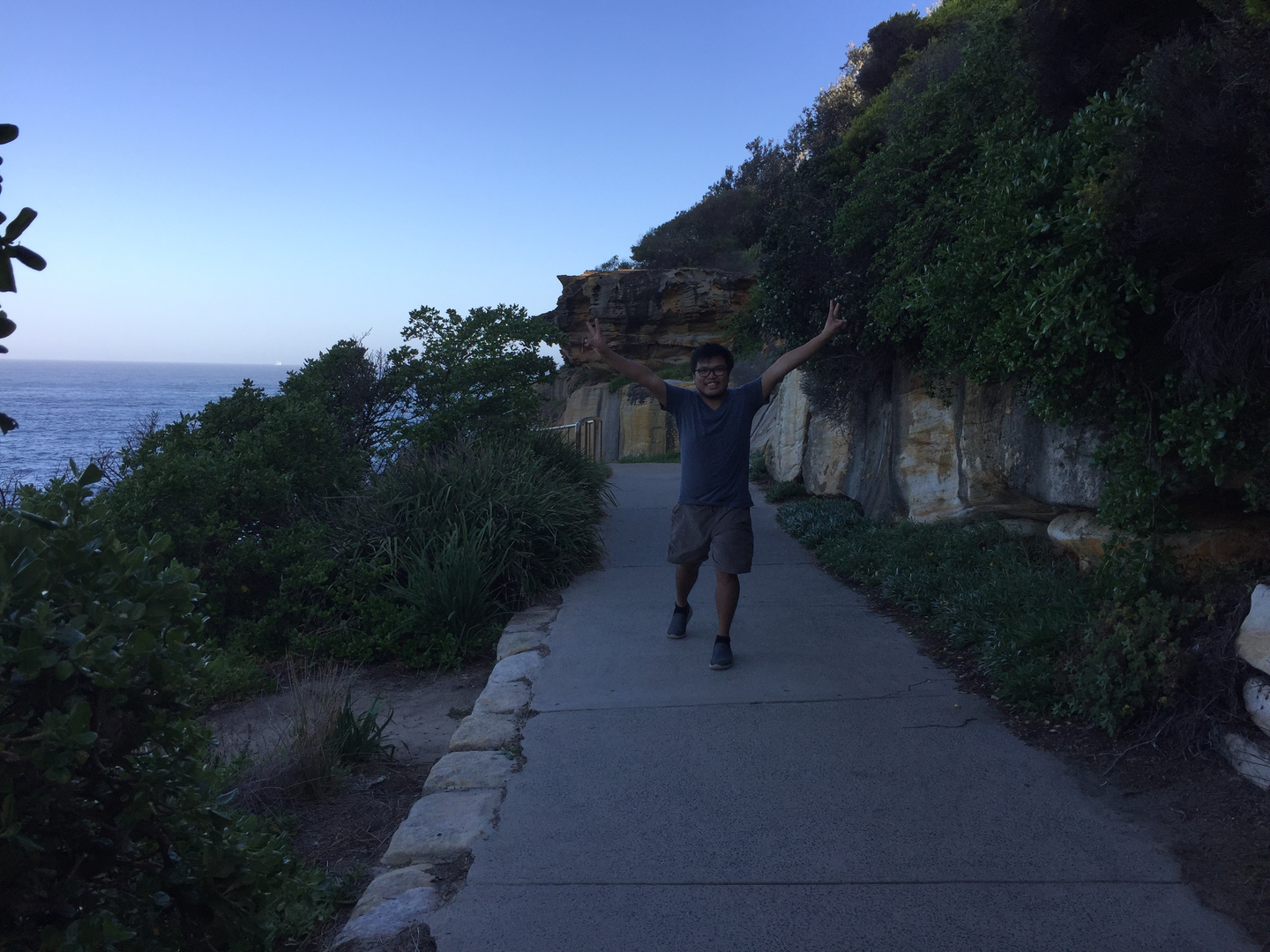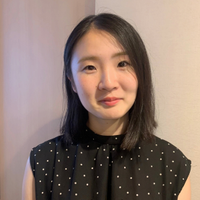- 営業事務
- 機械学習エンジニア
- 事業開発, 法人営業
- Other occupations (3)
- Development
- Business
Meet Ninz, Hacarus’s Back-End Developer! (An Introduction to Our Development Team in the Philippines)
Welcome to the Hacarus Global Blog! For the next series of interviews, I'll be interviewing Hacarus's development team in the Philippines! I interviewed Ninz, Hacarus' lead backend developer.
Rikka: Hello Nino! Thank you for taking the time to come out for this interview today! I did some digging on your LinkedIn profile and saw you have a lot of career experience in engineering!
Can you tell us a little bit more about your background in engineering?
Ninz: I’m working professionally for I think, almost 6 years now, but I’ve been working since I was in 2nd year college. I was part of a team that built an automated election system for student council. Along with that, I had experience working as an engineer at the 2nd startup that I joined, a YouTube related startup.
Rikka: What is it about startups that you like, for example?
Ninz: Our tasks at Hacarus are very technical. In a traditional corporate company, unlike startups, you have to put up the number of hours you worked. But in startups, mostly, its output based. We don’t say that we’ll work on something for 1, 2, 3 hours. We say something like “this is a feature I will finish it next week”. You can’t do this in a corporate setup. So if you like startups, I think Hacarus is a good startup.
Rikka: What was your main motivator to become involved with technology? Why do you find computer science enjoyable?
Ninz: I really like computer science because it’s a lot of problem-solving. So, I like the problem-solving part. Not the tech itself, but the problem-solving. So, you can say that anything with problem-solving is something that I’ll get into.
Rikka: Do you find yourself using problem-solving a lot at Hacarus? During what times were problem-solving skills necessary?
Ninz: Definitely. Especially right now that we’re developing our own algorithms and well, there’s a lot of challenges because we just finished working on the algorithm, the challenge now is on our side, where we have to think “how do we present the algorithms to the clients?” or “how do we integrate algorithms to mobile apps, web apps?” That, in itself, is a lot of problem solving because you cannot just look it up on the internet. No. It requires a lot of putting together different solutions. I find problem solving parts like those, to be interesting.
Aside from programming, Ninz is also an avid player of a diverse range of musical instruments, making him a lover of learning.
Rikka: I see! This is a bit off topic, but I see you have a drum set back there- do you play the drums?
Ninz: I play the drums, the piano, the guitar, and the violin. This is a stress reliever for me. I was in a band in high school, and from the age of 5, I started playing instruments. I played the flute. I have four guitars at home and a violin downstairs.

A few of Ninz's set of musical instruments
Rikka: You must be great at playing those instruments! They say it takes at least 10 years to learn an instrument professionally.
Ninz: I can say that I am good at playing the guitar probably, and then the piano and drums. For the violin, I’ve always wished I started earlier. In any case, you can say I really love music. Those are my hobbies, along with astronomy. Actually, I have a telescope out there! I was looking at Venus and Jupiter.
Rikka: I see! You're really musically talented! I think its really important to be invested and passionate in what you do. So back on topic, what are your responsibilities like at Hacarus right now?
Ninz: I don’t do frontend developing, that’s first. When people ask me what I do, I tell them I do backend developing. If you’re familiar with development, there’s a frontend, where you deal with building the interface web apps and stuff like that. And the backend part, the part that you don’t see, I usually deal with that. So if the machine learning guys, like Naoki, have some sort of algorithm and they want to make it available for the frontend engineers or for customer use – that’s where I come in – I take the solution and try to assemble it like a Lego block in the backend so that it makes sense for the frontend to use them. Something like that!
So, that’s most of the tasks I work on. If there’s a new project, I contribute and think of what the project will look like. I work on the structure of the application, like architecture. So when an architecture is underway, the architect is the one that does the blueprints. Development is like that. So you can say I’m part of the group of architects. I draw the blueprints of the whole application so that people know what to build- something along those lines!
"Development is like that. So you can say I’m part of the group of architects. I draw the blueprints of the whole application so that people know what to build"
Rikka: And you met Adin at a previous startup you used to work at, is that correct?
Ninz: Adin is my classmate in college. And Tin is also my classmate at college as well, so we’re all from the same school. For Adin, we are part of the development team as I mentioned earlier. I’ve been working with Adin in projects since I was in college.
Rikka: So you’ve known each other for years!
Ninz: Yes, although I’m not sure it’s a good thing (haha). But yes, we’ve known each other for quite a while now!
Rikka: So how did you know come to know about Hacarus?
Ninz: In the previous company I worked at, which also is a startup, things started to go big. Everything began to go corporate- that was in Manila by the way, the capital of the Philippines. I was also having health problems as Manila is a pretty toxic environment. Aside from wanting another endeavor at the time anyway, I also wanted to live in a cleaner city. I was browsing Angel.co, its for startups actually, and there, I saw a company recruiting for the exact same thing I was looking for. They were looking for python developers and I thought “okay, I’ll try this”.
Then, I emailed Kenshin, the CEO of Hacarus. I didn’t register on Angel and apply from there, but I directly emailed him asking if they still wanted a developer, and that I was available. Kenshin replied and we talked for a while. Oh, we’re also looking for android devs, and Adin is an android dev and at that point, I asked Adin if he wanted to apply here [at Hacarus] and he agreed. It was sudden. At that point, I didn’t have any expectations, and it turned out good.

Ninz enjoying the greenery
Rikka: When you say it “turned out good”, was that sort of a first impression you had?
Ninz: Well, there was no expectation, so I didn’t really have any impressions aside from the fact they needed a developer. In a startup, anything can go wrong- really fast. Before, it was just a total of 6 people at Hacarus. I was working closely with Takashi as it was a very small team. It turned out good in a sense that, the team was experienced. Especially Takashi and Kenshin. CEOs must have a certain quality. In comparison to my past experience working under other CEOs, Kenshin is really different. That’s because he can really direct the company without being involved in development.
Rikka: What do you feel were important characteristics of a startup or CEO?
Ninz: In startups, CEOs are usually involved in development. But at Hacarus, Kenshin’s really involved in the business aspect of things while Takashi is involved in the development aspect of things and both of them are actually quite good at what they do. So I was thinking, wow, this is good. This is a good direction. Because if your CEO and CTO are good and know what they’re doing then you’re probably in good hands. That’s the general trend in startups. If your CEO has 5 or 6 startups already, even if 3 of those failed, that CEO is still a good CEO because he knows what’s going to happen and knows how to direct a business. Takashi also has a lot of experience as well, being a Java person. He used to work with SUNS microsystem- which is Java-based. Even though he’s a Java person, he got the grasp of how to work with Python. Believe it or not, sometimes I used to code review Takashi’s work because he just started to use python.
Spending his professional history in many startups, Ninz began to look for a different company that better fit his needs as a developer.
Rikka: Really? I had no clue. How did that go?
Ninz: Given the short period of time, he was able to learn so much about Python and the framework that we are using. This was a really good sign for me because he’s really good at learning and picking things up quickly. So that’s why things turned out good.
Rikka: Do you consider working at Hacarus a better experience in comparison to your past experience with other startups?
Ninz: It’s better in a sense that people working at Hacarus may be much more well-rounded. My previous startup were composed of people who, for the first time, worked at a startup. Since it was everyone’s first time, it was completely understandable to me that many were inexperienced.
It’s different with Hacarus because this was Kenshin’s 4th or 5th startup I think, while Takashi is from a good development background as well. For that reason, people are more likely to be experienced and probably have a better idea of what to do.
Rikka: That couldn’t be truer! Building on experience is absolutely an essential part of startups. Last question, what do you like the most about Hacarus, or what do you find about it that’s unique?
Ninz: What makes Hacarus fun is that it’s a bit multicultural. I think it’s interesting about how there’s serious Japanese culture and Marcel will come in and do corny jokes- which aren’t funny. It’s fun in a way that people are interacting with each other differently. Way, way back when Marcel wasn’t in Hacarus, people were trying to connect with each other. This is sort of my definition of fun- seeing how dynamics work. My previous startup was the same, where I could work with people from different backgrounds. It’s fascinating.
You try to connect with people and it brings out some quirks in their personality.
Rikka: Interesting! Like?
Ninz: For instance, there’s Marcel where he tries to be funny and there’s Naoki who seems to be thinking “what’s going on”. So, in that situation, it would be probably really funny in Marcel’s culture and probably not funny in Naoki’s culture. Naoki being clueless and Marcel smiling about his jokes is really a great sight- people don’t exactly “get” each other, but that’s the happy and interesting thing about working in a setup like this. That makes me happy.

Ninz, who also enjoys travel, is pictured in Australia
Rikka: Thank you so much for your time! I really appreciate you coming out today, early in the morning, just for this interview. I got to know a lot more about you and I’m so glad about that! Thank you!
Ninz: Thank you! And no problem!



